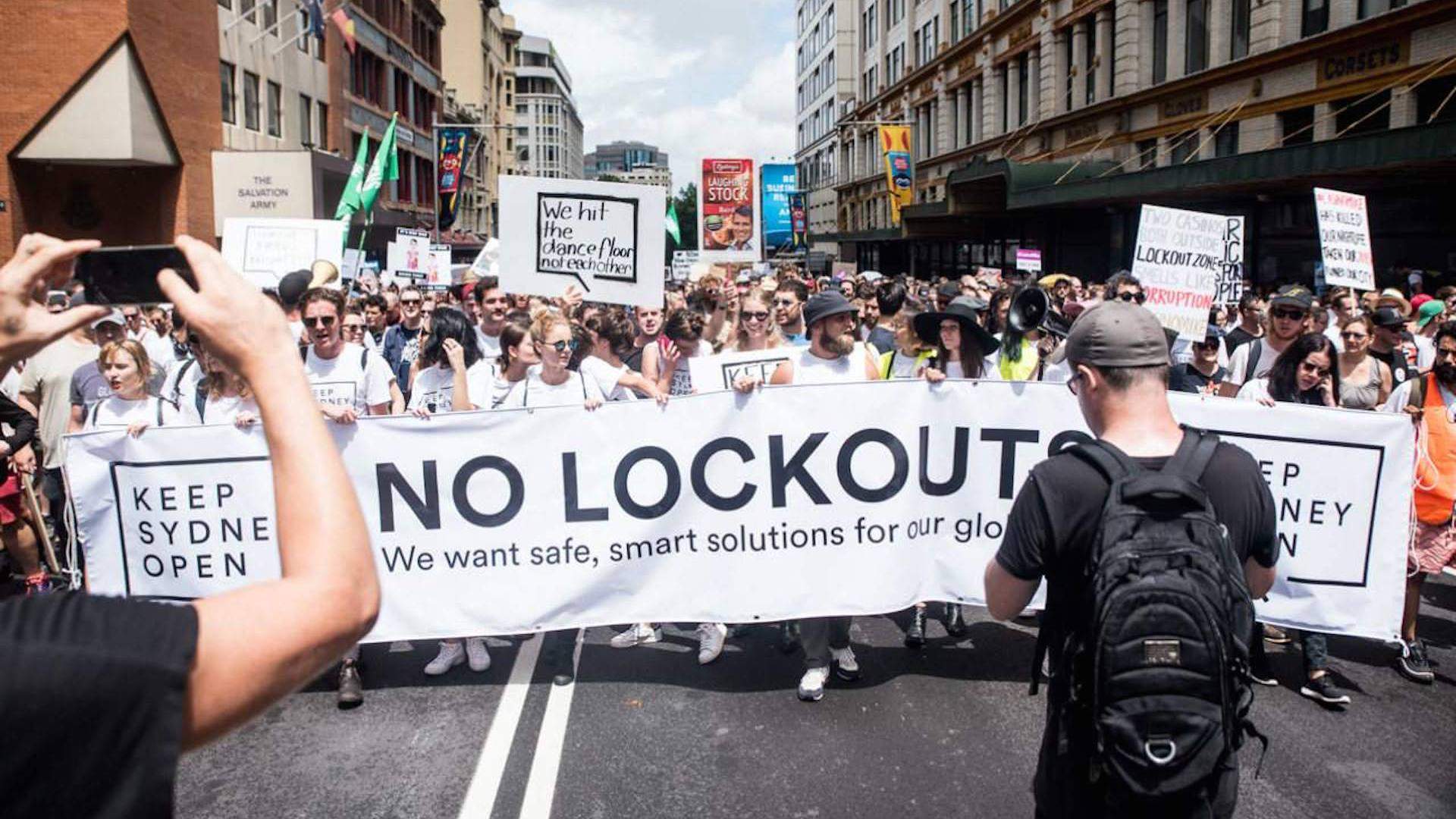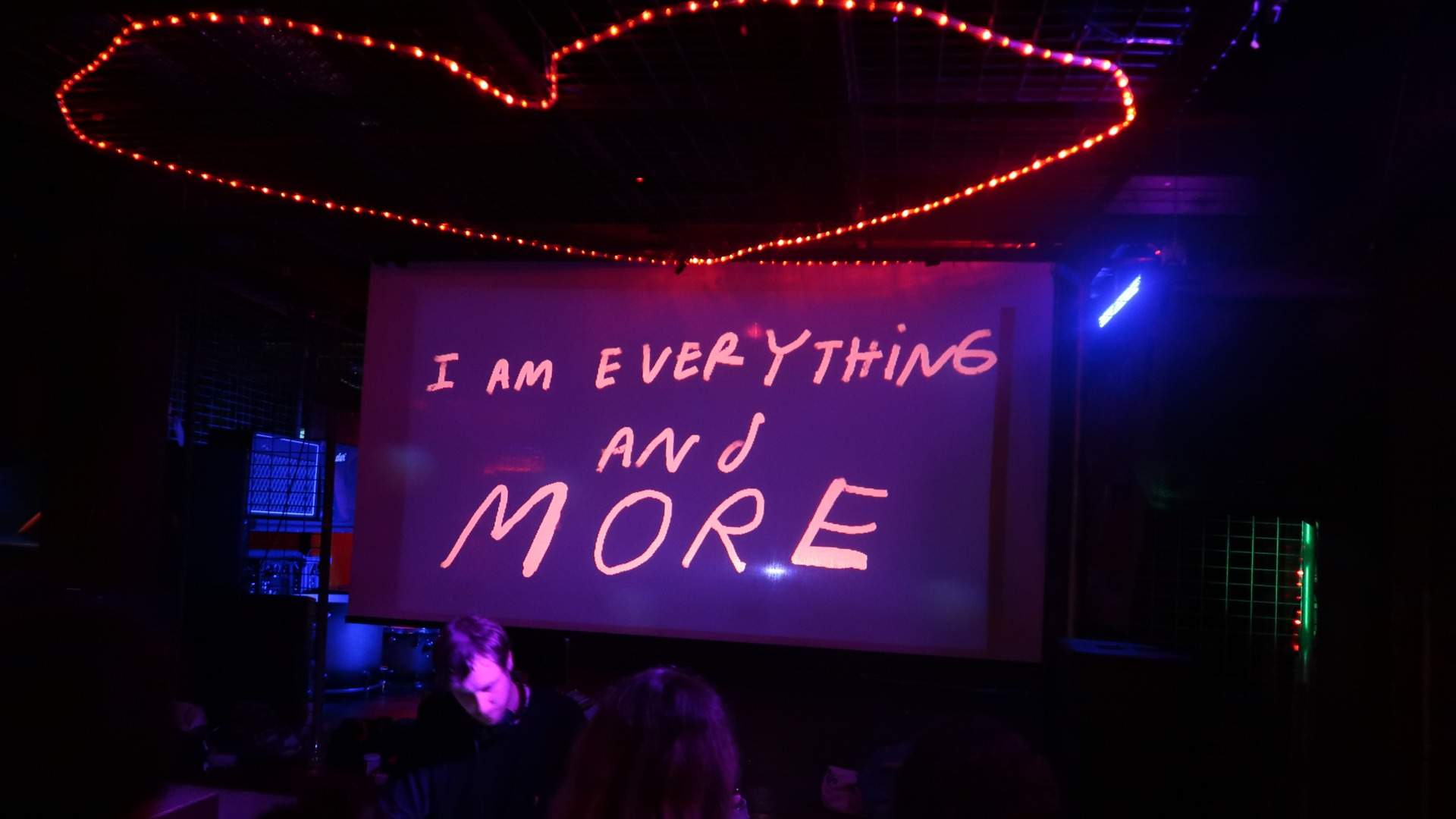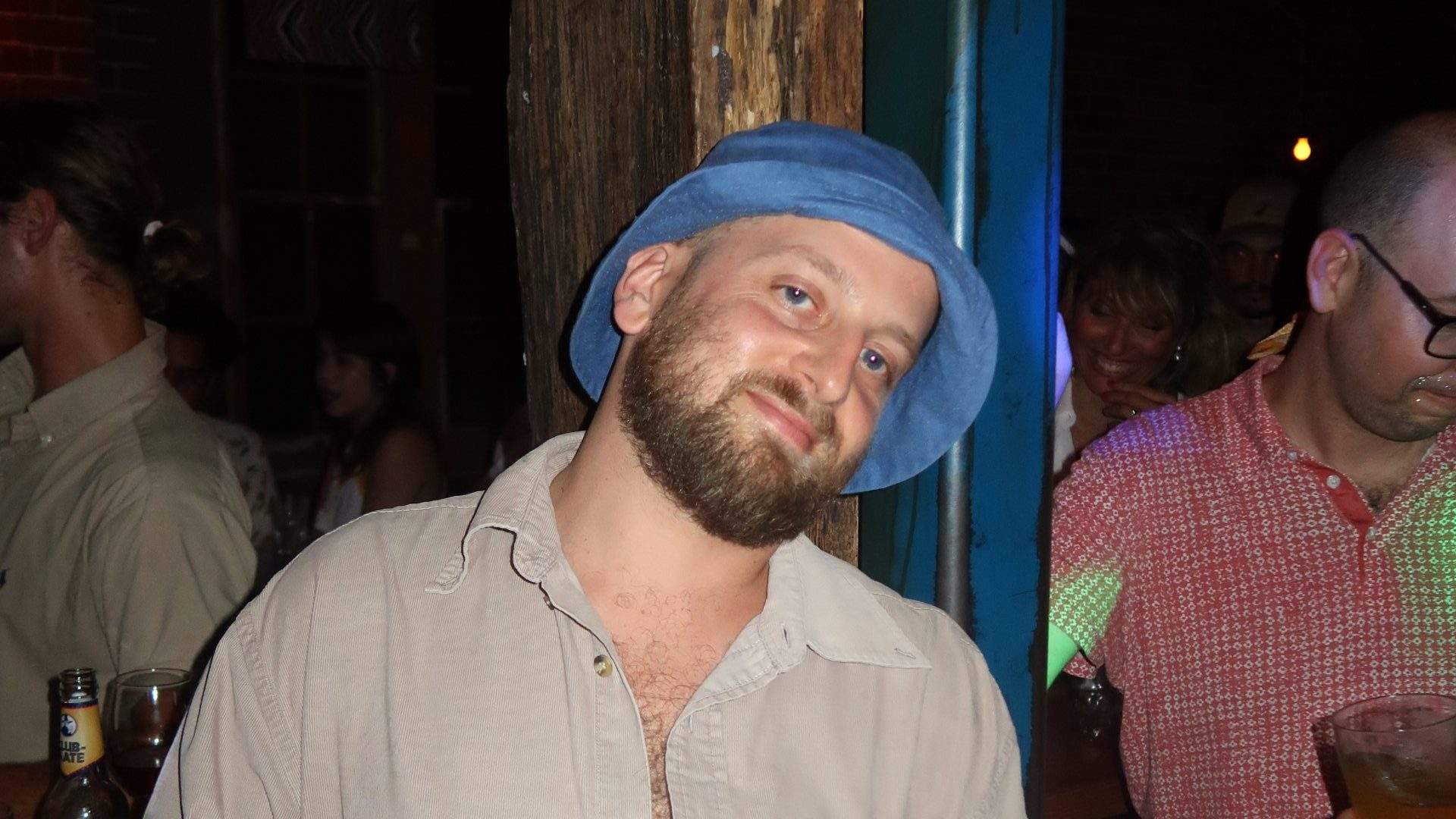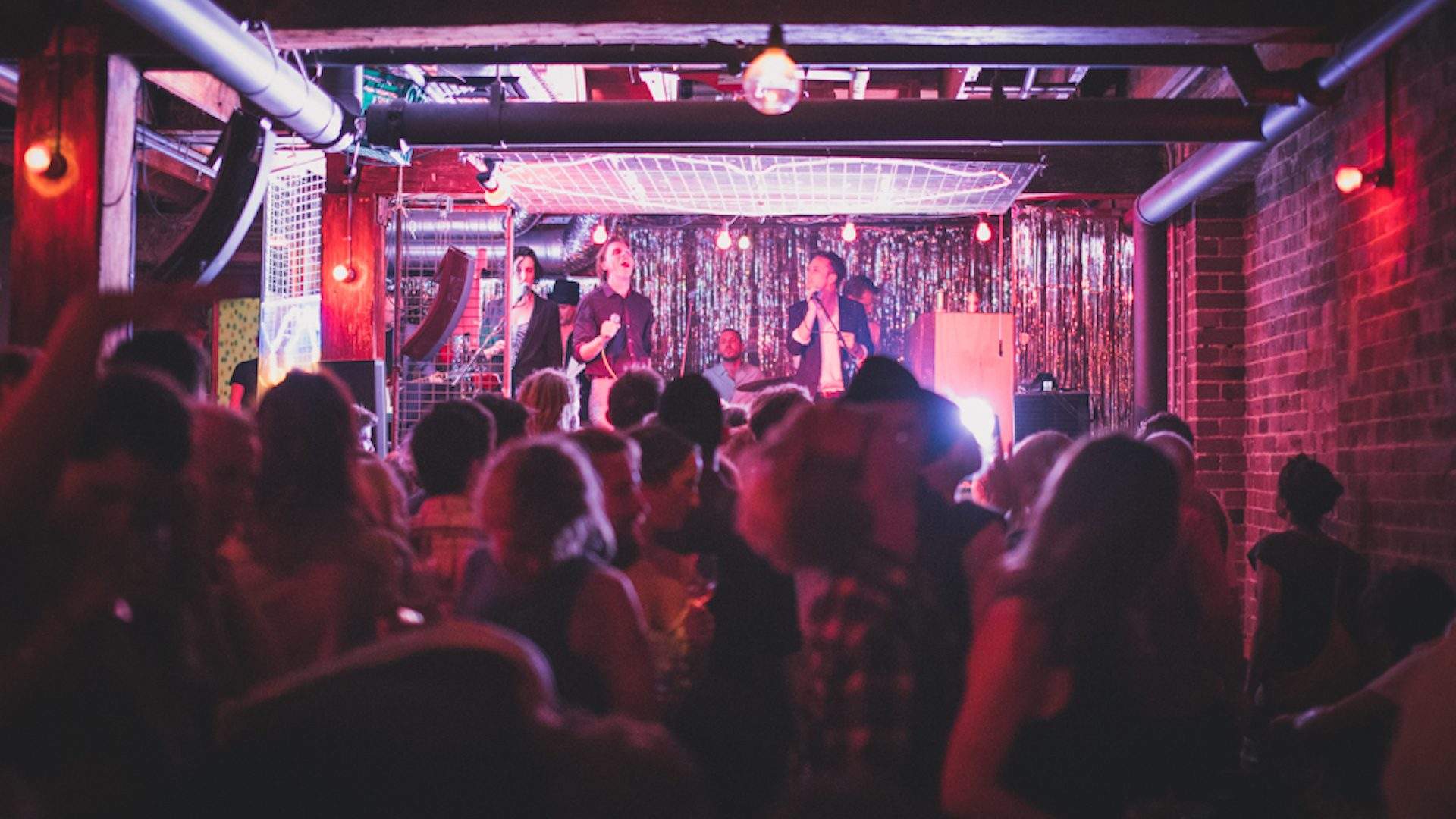Freda's Founder David Abram on the Future of Sydney's Nightlife
Freda's founder chats about Sydney's nightlife over the last nine years, the legacy of his club and his favourite memories as the beloved live music venue closes its doors.
On November 2, it was announced that beloved Sydney institution Freda's would be closing for good. Operating out of a century-old warehouse on Chippendale's Regent Street, the live music venue has survived nine turbulent years of lockout laws, gentrification and a global pandemic, while continuing to make space for up-and-coming, boundary-pushing and diverse artists from Sydney and afar.
Opening in November of 2011, the club was named after founder David Abram's mother Freda, a fashion designer and painter who raised Abram alongside his father Phil. Both Phil and Freda are immigrants and Holocaust survivors who Abram credits for his creativity and passion. In his statement on Freda's closing Abram thanked his parents, saying: "they have taught me you can make creativity the centre of your life and succeed. No matter the odds."
Freda's was born at a tipping point in Sydney's nightlife, with a newly elected government at the helm that was set to dramatically change the city's creative sector. In fact, according to Abram, it was already changing for the worse — and Freda's was created in opposition to this. "One of the reasons why I started Freda's is that I felt like the arts and creative communities that I'd grown up around in the inner city had fallen victim to the incessant gentrification and development that has blighted Sydney over the last 15 years," Abram told Concrete Playground. "It really bothered me that there were no places for self-expression, young people to meet and interact around their own music and ideas, nor for emerging artists to hone their craft and performance to take to bigger stages."
Of course, the creative sector had worse on the horizon. In February 2014, the NSW government introduced the lockout and last-drink laws in the Sydney CBD and Kings Cross in an attempt to curb alcohol-fuelled violence. The fallout from the laws is still being felt today, with hundreds of venues closing over the five years the laws were in place and those that survived within the CBD seeing a 40 percent drop in revenue. Freda's sat just outside the lockout zone, but felt the impact of the laws regardless. The venue was initially limited to a midnight close time before it was extended to 2am on weekends in 2017 and finally 4am last year.

Image: David Abram and protesters at a Keep Sydney Open Rally in 2016, Kimberley Low
"Being closely involved in the music community for almost a decade, I have seen the drastic decline in Sydney's nightlife — from the envy of the world to a relative backwater," Abram said back in 2017. "We have lost a large part of our soul in this process." Three years on and this view remains, as Abram says: "the reality is that this lack of spaces has a direct correlation to a lack of arts and music industry prospects and results in one of two things: people give up on their dreams and some incredible talents are lost forever, or alternatively artists and musicians are forced to move overseas to more progressive societies in Europe and elsewhere. The reality is the talent is here. The ambition is here. We just need spaces, support and far less red tape."
Despite the extended trading hours, Freda's continued to run into challenges. Six years on from the introduction of the lockout laws and in the throws of a global pandemic, Abram reflects on the difficulties of running a venue in Sydney. "Freda's has been a very personal project with many challenges and complications, and it has often felt like as soon as we have climbed one mountain there has been an even taller one to climb on the other side. Each time you climb one of these mountains it takes a part of you with it," Abram said. "One thing I can say from experience is that you have to be tough to have survived as a venue in Sydney because the last ten years have been brutal."
But, Abram has a more positive outlook on the future of Sydney's music, culture and nightlife. When asked about the fallout from the pandemic, he says, "I think right now things appear dire, and I am sure Freda's closing won't change people's opinions about this. However, I am incredibly optimistic and motivated for the future. We have spent enough time in cultural purgatory and just like when the Berlin Wall fell, we too will have our day in the sun."
Abram also says the pandemic has produced some unexpected benefits for Sydney's creative industries. "COVID-19 has obviously been devastating for everyone, particularly those in the live music and 'gig' economy, but it has also meant that some of our best artists, performers and creative minds have returned home from LA, Berlin, New York and other corners of the globe they chased their creative dreams," Abram continues. "Further to this, for the first time in decades, landlords are going to have to assess the relentless rental inflation and offer space at a fair price within the city and surrounding areas. It is also in councils, state and federal governments interests to see the live music and cultural industries thrive as we climb out of this pandemic driven recession. We have an opportunity right now to change the narrative and I believe we can."

Image: Carla Uriarte
For now, however, the city is preparing to farewell Freda's. The announcement of its impending closure was met with an outpouring of sadness and support, with the venue playing host to countless Sydney musicians, DJs, producers, artists and performers over the years. From local up-and-coming musicians like Mildlife, Memphis LK and Egoism to established members of the Sydney arts community, such as Rainbow Chan, Flexmami and former Head of Music and Programming at FBi Radio Amelia Jenner, and international superstars like Mac Demarco, the Freda's stage has housed some of the most talented and influential musicians of the last decade.
When asked about how he created a space of such creativity and positivity, Abram said: "exploring how the space can be interpreted has been one of the fundamental objectives of Freda's, and allowing so many different creative expressions to occur under one roof has kept the space dynamic, open-minded and accessible for all who have inquisitive minds. With regards to the positivity of the space, the simple answer was to have a sense of humour, to realise a night out is meant to be fun even if we are sometimes exploring challenging subjects in our art and expression."
Abram also has hope other Sydney venues can continue creating such spaces around the city. "The Bearded Tit in Redfern, which is unfortunately still closed (aside from takeaway) at the moment, has always been a kindred spirit in terms of its cultural output and performative programming. The Red Rattler in Marrickville and 107 Projects in Redfern are also community-driven spaces showcasing diverse artists and music. Giant Dwarf has been an incredible incubator for comedic talent these last few years. I'm also a huge fan of party institutions like Mad Racket and Club Kooky that have been part of Sydney's nightlife for over 20 years."
Reflecting back on his favourite memories at Freda's, Abram says, "there are so many individual memories it would be impossible to list them all here. But a feeling that has consistently been etched into my mind happens at a certain part of a night when an incredible DJ is in full flight and the dance floor is locked in and free. There has been nothing more satisfying me than being a part of creating this experience for people."
Freda's will close on Sunday, November 21, after the Festival of Freda's. Tickets to both Friday's Vibe Positive and Saturday's The End are sold out, but tickets are still available to see The Moving Stills on Thursday, November 19 and the book launch of 'Becoming' by Joel Forman and Edward Mulvihill on Friday, November 20 at Freda's art space Down Under.
Top images: David Abram by Carla Uriarte and Freda's by Imogen Grist






